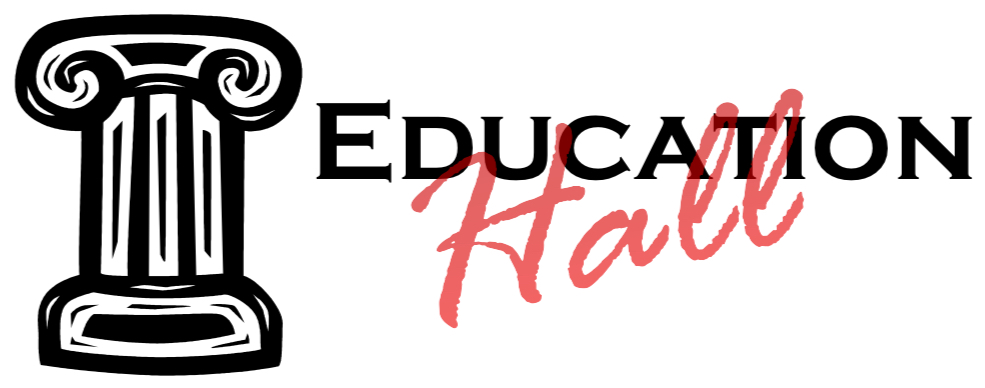By Pete Hall

If you’re looking for information about launching an instructional coaching initiative, refining your instructional coaching practices, or augment your instructional coaching program, you’ve come to the right place. In this multi-blog series, I’ll share what I’ve learned about the nature of instructional coaching/capacity-building work. Off we go!
My journey with instructional coaching began over two decades ago. In my first principalship in Reno, Nevada, the school I led had a position called “Reading Facilitator.” This job was tied to a particular instructional program, and the scope of influence was rather limited because of that. I’m a big fan of the “people, not programs” mentality, so as our staff evolved in our thinking, we embraced the idea of expanding the RF job into an all-encompassing “Instructional Coach” position. It didn’t matter if you taught reading, math, science, art, music, history, PE, particle physics, or what. The purpose was clear: this position would be a job-embedded professional-development agent whose sole purpose was to help teachers – all teachers – become more efficient and effective. Period.
What a resource! What an opportunity! Over the years, we were able to expand the roles by hiring as many as three instructional coaches, allowing us to have a roughly 15:1 teacher-to-coach ratio across the campus. The results were staggering. The school went from being the only Title I school in the State of Nevada to fail to make its AYP goals for four consecutive years to becoming the only Title I school in the State of Nevada to garner “High Achieving” status just two years later. And just about every metric you could use to determine a school’s success ticked up: academic proficiency, academic growth, behavioral/discipline referrals, average daily attendance, average teacher attendance (my personal favorite benchmark), family engagement, community partnerships, even calls from the White House went from zero to one!
I was a believer, and I’d witnessed first-hand the power of instructional coaching.
Next up, two more principalships, these in Washington State. Similar results. So I partnered with Alisa Simeral, one of the standout instructional coaches we’d had in Reno, to start sharing this work. We presented at conferences, contributed to articles, and published books. The debut text was Building Teachers’ Capacity for Success in 2008, which was followed by a handful of others, including what is often referred to as THE book on instructional coaching: Creating a Culture of Reflective Practice: Capacity-Building for Schoolwide Success.
Fast-forward to today. I’ve been supporting schools and districts implement instructional coaching programs all across the globe, with the same philosophy that got us started: Our purpose is to help teachers – all teachers – become more efficient and effective. Period.
Needless to say, I get a lot of questions about instructional coaching, and I’m a subscriber to the late Becky DuFour’s philosophy of “Clarity precedes competence,” so I thought I’d launch a little series of FAQs and my responses. Perhaps this will bring some consistency to your approaches, or at least open the door to ensure the right people are talking about it together.
*Note: These are not comprehensive responses. For that, go read the book. For concise “elevator speeches” that get the big idea across quickly, this will get you started.
FAQ collection #1
How do I begin as an instructional coach?
If you’re starting from scratch, a couple of things to clarify in advance will help set you up for success as an instructional coach. First, why do you want to do this work? What are you hoping to accomplish? Being connected to your purpose will help you endure some of those rougher, bumpier times (and they’re coming, don’t you worry). Second, what is your setting’s agreed-upon goal and vision of instructional excellence? Are you clear on what your focus is going to be? If you have a target, you’re more likely to hit it. Without a clear target, well, good luck. And third, are you okay with coaching not being about you? Seriously. Coaching is about supporting other people in meeting their goals and improving their craft. It’s not about the coach. It’s not about you. You’ve got to be willing to put yourself in your own back pocket while you work on supporting others.
With those three fundamental mindsets well confirmed, the next course of action is pretty universal: start building and tending to your relationships. All of them. Get to know your people as teachers, teammates, and human beings. Find out what makes them tick, uncover what you respect and admire about them, ask them questions and listen, listen, listen. The stronger your relationships are, the more you can withstand together, the more you can talk to each other, the more you support each other. It all starts with relationships; yet it doesn’t end with relationships. Remember: relationships are a means to an end. You’ll be more effective as a coach…and teachers will be more effective in their classrooms…and students will learn more, if you have strong, trustworthy relationships with your teachers. So, how do you build and nurture relationships?
Coaching is about supporting other people in meeting their goals and improving their craft. It’s not about the coach.
How do I answer the question, “Why do I need to be coached?”
Unless your teacher is Michael Phelps, Serena Williams, Michael Jordan, or Mac Davis (another GOAT, this one a musical artist who sang “Oh lord, it’s hard to be humble, when you’re perfect in every way…”), there’s room for improvement. We all have the opportunity – nigh, the obligation – to improve, to grow, to evolve, and to strive for a greater impact, and coaching is a proven, convenient, and interactive way to engage in that growth process. As a principal, I always shared with my staff the expectation that we learn and get better somehow, anyhow: reading books, conducting action research, taking additional courses, and partnering with an instructional coach are all viable, useful options. And for heaven’s sake, if we have a job-embedded professional development agent right here in the building, why not capitalize on that free (to you, at least) resource for everything you possibly can? Coaches can help us uncover our hidden talents, remove the ceilings from our potential, help us streamline our reflective and decision-making processes, and in a thousand other ways support our effectiveness in achieving our goals, no matter how incremental or monumental they may be. So why do you need to be coached? Perhaps a better question would be, “Why not?”
What does an instructional coach actually do? What does a coach NOT do?
In the perfect world, which is really the only thing I’m interested in – moving one step closer to the perfect world, at least – the primary item on a coach’s to-do list would be…wait for it…coaching teachers. This can take a variety of forms, of course: modeling lessons, engaging in feedback discussions, processing events, developing clear lesson plans, identifying appropriate strategies for particular learning outcomes, co-teaching lessons, analyzing data, brainstorming approaches to solve pressing problems-of-practice, and any of scores of strategies to collaboratively provide support to help teachers become more effective in leading student learning and achieving their goals.
As for the no-can-do list, the primary activity that’s off-limits is anything that has to do with teacher evaluation, appraisal, discipline, and hiring/firing decisions. Often, instructional coaches are considered pseudo-administrators, or even de facto administrators in some settings, and they end up tackling responsibilities that aren’t in their lane. To be clear, instructional coaches are there to serve as 100% support to teachers. They can’t be 100% support to teachers if they’re assigned (or if they stray into) administrative, supervisory roles. Nothing hamstrings an instructional coaching initiative faster than the erosion of trust when something shared by a teacher (or observed only by a coach) ends up as a ‘ding’ in that teacher’s performance appraisal.
For more ideas addressing this pair of questions, read my earlier blog, Let the coaches coach.
This ought to help get you started. Not to worry, there will be more installments of this FAQ series. Hope that helps!
Pete Hall is the President/CEO of EducationHall, LLC, and the author of 12 books. You can reach him at PeteHall@EducationHall.com.
Stay Up To Date
Stay up to date with the latest news updates and blog posts
Share Article
Share this post with your network and friends

Recent Comments